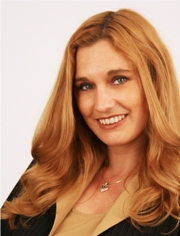Crazy About You
Crazy about you

By Valeria Vilar, MA, BEd, LMHC
Achieving balance in a couple’s relationship is no easy task. It requires effort and commitment from both parts. And even though it’s hard, it is very desirable, and yes, it is accomplishable.
Relationship unbalance can be caused by various circumstances. I would like to focus today on those couples that stay together even though both of them feel unsatisfied, burdened, drowned and even maintain self-destructive actions.
I’ve often heard from my patients expressions like: “I feel suffocated in this relationship”, “nothing seems to satisfy him”, “she is always trying to control me”, “he’s extremely jealous”, “She’s constantly asking where I’m at, who I’m with, what time I’ll be back, who’s that e-mail from, etc.” They feel constantly pursued and watched by their partners. Let’s explore this situation:
I’ve noticed how this type of person wants to exert control over their significant other. They need to know of their every move, and even their every thought. They demand to spend more time together, and require constant attention. It never seems to be enough for them. They typically relate to a specific type of person and develop what we call a relation of emotional dependence.
In emotional dependent relationships we find people with low self-esteem, with permanent feelings of loneliness, and an insatiable need of affection. Those symptoms are often accompanied by depression, anxiety, hostile attitudes, and feelings of failure.
They can’t get out of the relationship even though it doesn’t satisfy them. Their behavior can be compared to that of a gambler. A gambling addict can spend all his money and even go into debt, because of an uncontrollable need to keep playing.
At least one person in the couple is in desperate need of affection and approval from the other. To attain this, they struggle to please the other to an extreme that hurts their own pride and dignity and their expectations regarding the relationship. They generate a sense of burden and asphyxiation in their partner. They don’t mean to abuse or own the other one, but come to these extremes prompted by their excessive need of affection.
This kind of relationship can be also compared to a drug addiction. Because people that suffer either of these conditions go through the same feelings of craving, dependency and abstinence.
Among the emotional dependents, or emotional addicts, we find:
· An irresistible need, a craving, to have a partner and to spend time with them.
· A tendency to put their partner before anything else in their lives.
· A constant necessity to keep in contact with their partner when they are not present.
· Devastating pain when the relationship is interrupted or ended.
In a dependence relationship, both parts are unsatisfied, but they can’t get out of a constantly repeating behavior pattern. Conscious of the lack of harmony in their relationship, they make endless efforts to change it, but end up frustrated when they don’t get any significant results.
These couples could achieve balance and harmony in their relationships by identifying the right ways to break the cycle. Ideally, they would need to create awareness of their situation and recognize which specific behaviors are adding up to the pattern of dependency they are going through. By developing this ability, these couples would be able to develop the loving, functional relationship they want, one in which both of them would be happy.
Valeria Vilar, MA, BEd, LMHC, is the Clinical Director of Open Mind Psychotherapy & Wellness Center. The center is located at the Weston Town Center since 1998. Additional information, can be reached at (954) 385-9550, and This email address is being protected from spambots. You need JavaScript enabled to view it. or by visiting www.openmind.cc



